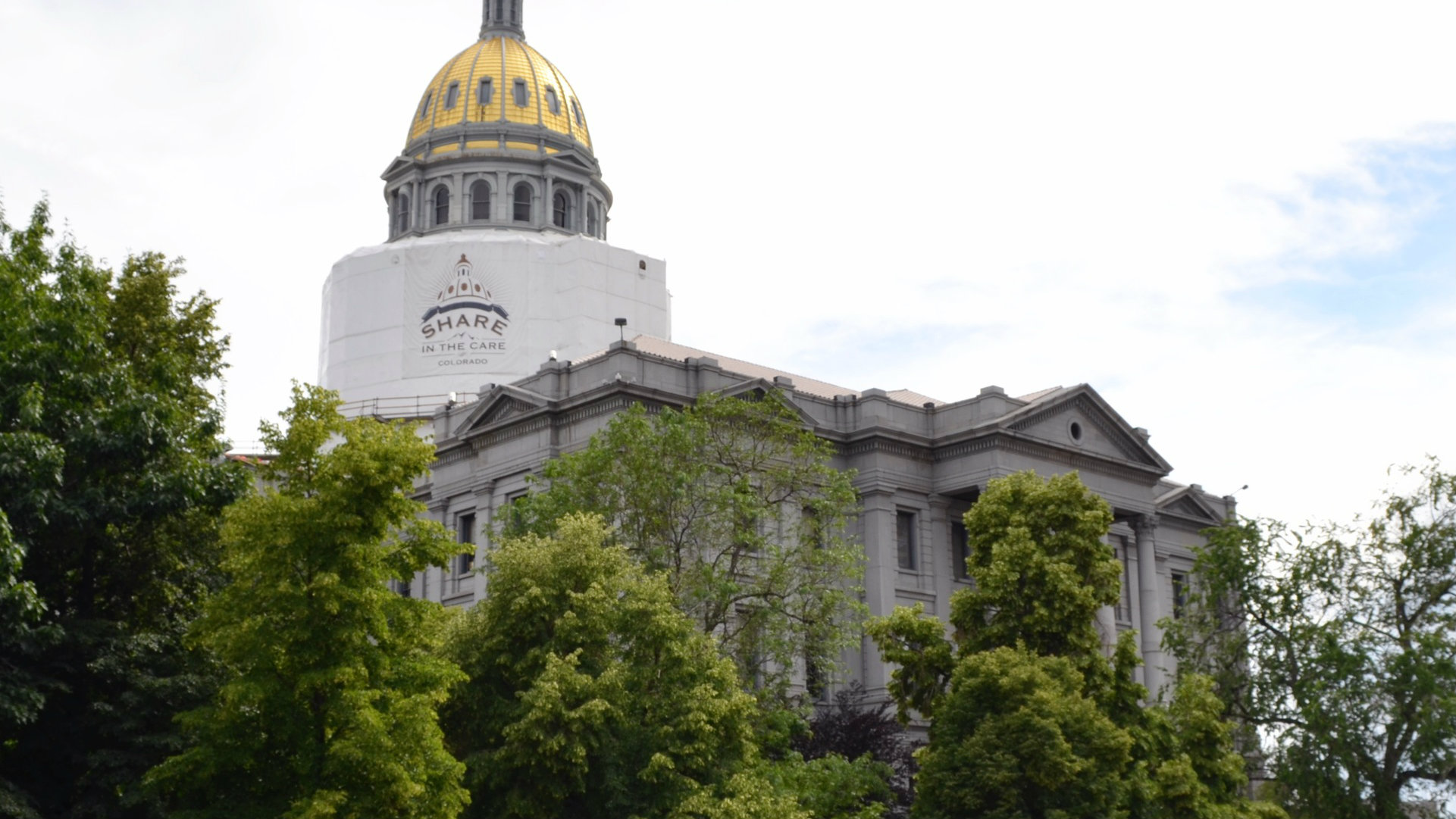
 As Gov. John Hickenlooper prepares remarks that will be delivered on Thursday before the Colorado General Assembly, a look back at last year’s State of the State speech shows a long list of promises made in 2013.
As Gov. John Hickenlooper prepares remarks that will be delivered on Thursday before the Colorado General Assembly, a look back at last year’s State of the State speech shows a long list of promises made in 2013.
The governor has accomplished much of what he set out to do and, much to the dismay of his critics, who accuse Democrats of overreaching in the 2013 legislative session, several items reached the governor’s desk for a signature.
Specific goals that appeared in the speech include legalizing civil unions, regulations for the marijuana industry, support for aerospace and other advanced industries and a funding structure for the Medicaid expansion that didn't hit the state's general fund.
The governor started off the 2013 State of the State address by asking for increases to the state's reserve fund, an emergency fund saved for unexpected events.
"Mission accomplished on that one," Ed Sealover, who covers the statehouse for the Denver Business Journal, tells Colorado Matters host Ryan Warner.
"When [Governor] Hickenlooper first took office, he ran into some resistance trying to build a reserve fund, particularly from Senate Democrats, who wanted to spend more of the money on education." Sealover adds.
According to Sealover, most Democrats in the Capitol are currently on board and want to increase the reserve fund even more.
Hickenlooper also called for in 2013 changes to education funding, which Amendment 66, voted on in November, was supposed to cover.
The Amendment failed but education will likely see more money in next year's budget anyway thanks to surplus revenues the state is now taking in.
"They're hoping to pile up a lot of money for education," Kristen Wyatt of the Associated Press says. "All the surplus spending is probably going to go to education.”
Wyatt says that the money will likely pay for reforms that the legislature has already passed, something that couldn’t be financed through a tax increase.
The Hickenlooper Administration is proposing a $101-million increase in funding for higher education in 2014-15, an item the legislature will address and finalize during budget talks during the spring session.
Sealover says business leaders are generally supportive of increases in education funding, particularly higher education, because of a desire to have a more educated workforce.
Colorado has been known to import a lot of college graduates, according to Sealover, but it's generally in businesses' interest to cultivate the talent at home.
Continuing the theme of jobs and business in the 2013 State of the State address, Gov. Hickenlooper told the General Assembly that his administration was undergoing a review of the state's rules in response to complaints from business owners about overregulation.
"Called 'Pits and Peeves,' we reviewed approximately 7,500 rules and more than half of these rules will be either repealed or modified," Hickenlooper said last year. The administration says that figure has grown to more than 8,000 rules.
"None of them are ones that people have been really asking for," Sealover says. "Even business leaders are hard-pressed to figure out exactly what regulations they want to roll back or get rid of but however much the governor's been doing, none of it's creating a big ripple, at least among the people who continue to call for regulatory reform."
In other regulatory news, last year the governor signaled his distaste for local restrictions on the oil and gas industry saying any regulation should be "rational and based on science."
During the session, despite Democrats' calls for more regulation of the industry, Wyatt says the governor convinced them not to send any controversial bills to his desk, including a statewide fracking ban.
Wyatt adds that the governor and the industry would prefer any rules for oil and gas producers come from the executive branch through the Colorado Oil and Gas Conservation Commission, instead of through the legislature.
The governor also said in 2013 that Colorado is working on a network with Arizona, North Dakota and Wyoming to improve how quickly recipients receive unemployment benefits but Wyatt points out “that's still a work in progress.”
If there was an overarching theme to Governor Hickenlooper's 2013 State of the State address, it was togetherness and unity.
Hickenlooper, however, also raised contentious issues like universal background checks for gun purchases.
Sealover predicts that the governor will not bring up anything that contentious in this year's speech.
"Election years are typically years in which less controversial bills are going to run anyway," Sealover says. "Legislatures are going to hope that voters have a short memory for the controversial and can see that they ran things like puppies and sunshine in an election year."
Speaking of elections, the governor also sounded pretty confident a year ago when it came to his reelection chances.
"Today marks the midpoint in our first term," Governor Hickenlooper told the General Assembly in 2013. "Although we prefer to look at it as only a quarter of the way through our administration."
Wyatt says the politics are more dicey now: "The mood very much is different now -- he's got a whole slate of Republican opponents."
Wyatt says Gov. Hickenlooper will pressure Democrats in the legislature not to send anything controversial to his desk for signature, particularly because he's more sensitive to his critics who were unhappy with the 2013 legislative session -- some were so unhappy they pushed to secede from Colorado
"He wants the puppies and the rainbows," Wyatt adds.
Correction: In the radio interview for this story, Ed Sealover says that the state's reserve fund is up to 6.5% of the budget. The reserve actually sits at 5%, but Gov. Hickenlooper is proposing raising it to 6.5% this year.








